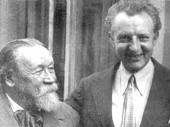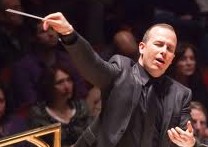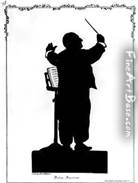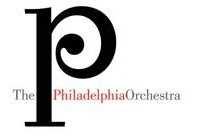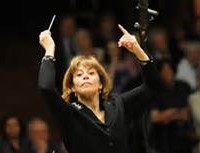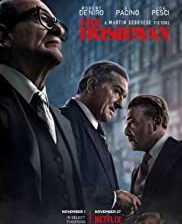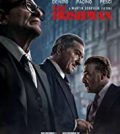- Two Thanksgiving Thoughts for the ACAPosted 10 years ago
- Shop til you Drop at the Healthcare Marketplace Part 2: Frustration!Posted 10 years ago
- An Early Casualty in the Affordable Care FightPosted 10 years ago
- Some Good News for a ChangePosted 10 years ago
The Stokowski Festival in Philadelphia
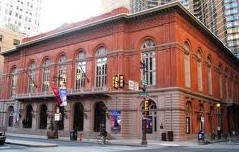 This past week-end a sharp promoter with the Philadelphia Orchestra put together a 3-day series of concerts honoring Leopold Stokowski and showcasing the incoming musical director Yannick Nézet-Séguin. Nézet-Séguin has been on display a dozen or more times since he was named in 2010, even showing up to lead the crowd at a Phillies baseball game. He is a game performer and something of a showman like his famed predecessor, ready to connect with the faithful in any way he can.
This past week-end a sharp promoter with the Philadelphia Orchestra put together a 3-day series of concerts honoring Leopold Stokowski and showcasing the incoming musical director Yannick Nézet-Séguin. Nézet-Séguin has been on display a dozen or more times since he was named in 2010, even showing up to lead the crowd at a Phillies baseball game. He is a game performer and something of a showman like his famed predecessor, ready to connect with the faithful in any way he can.
 Stokowski was the London-born organist and chief conductor in Cincinnati who in 1912 moved to the City of Brotherly Love to take over the local orchestra. He mangled the English language with a phony mittel-European accent that was constantly ‘under construction’ (his mother was Irish.) He had spotlights aimed at his hands when he conducted in blue serge suits. He orchestrated Bach pieces and made them sound like Wagner. He was a pioneer in the art of recording producing a stereo recording in 1940. He lectured matinee concert-goers about their shopping bags. He cavorted with Greta Garbo. Most importantly he was a great musician and great conductor who was active right up to the end at age 95 in London. I had the great fortune to see him both in New York and London and can attest to his remarkable musical and marketing powers.
Stokowski was the London-born organist and chief conductor in Cincinnati who in 1912 moved to the City of Brotherly Love to take over the local orchestra. He mangled the English language with a phony mittel-European accent that was constantly ‘under construction’ (his mother was Irish.) He had spotlights aimed at his hands when he conducted in blue serge suits. He orchestrated Bach pieces and made them sound like Wagner. He was a pioneer in the art of recording producing a stereo recording in 1940. He lectured matinee concert-goers about their shopping bags. He cavorted with Greta Garbo. Most importantly he was a great musician and great conductor who was active right up to the end at age 95 in London. I had the great fortune to see him both in New York and London and can attest to his remarkable musical and marketing powers.
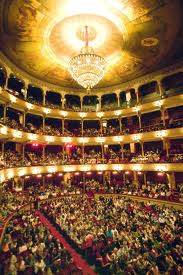 On Night One of the festival, the orchestra repaired to the Academy of Music, its home before 2003, and with some audio-visual assists, played a number of pieces championed by Stokowski in his heyday, concluding with an audience request program on night three, another invention of the great ‘Stokey.’
On Night One of the festival, the orchestra repaired to the Academy of Music, its home before 2003, and with some audio-visual assists, played a number of pieces championed by Stokowski in his heyday, concluding with an audience request program on night three, another invention of the great ‘Stokey.’
The festival got a considerable boost from excitement engendered by Stokowski’s 37-year old boyish French-Canadian successor. Goodwill was abundant at the start as he led the orchestra through Dvorak’s New World Symphony and Rimsky-Korsakoff’s Scheherazade. I can think of no other conductor including Stokowski who seems to love what he is doing when he is making music on the podium as much as this performer. Nézet-Séguin used scores for both pieces but was quickly caught up in the passion of making music which seems to be the hallmark of his conducting. He has shown great instinct for how pieces are supposed to go. He conveys it extremely well to the re-energerized Philadelphians, who struggled during the Eschenbach years. Enthusiasm was everywhere the first night, particularly in the audience which responded to the concert like it was a World Cup event.
For Night Two, the Montreal-born conductor trotted out Ippolitov-Ivanov’s Caucasian Sketches in addition to Brahms First and Wagner’s Tannhauser Overture. I expected moths to fly out of the Russian score, so little is it now played. Even the last movement The Procession of the Sardar no longer has the exposure it once had. Nézet-Séguin’s account made it all fresh again and was for me the highlight of the festival. The Brahms was very good, the Wagner passionate. Where Stokowski tinkered with the sound of the orchestra, retouching scores and even rewriting them, his successor sticks to the printed notes and avoid some of the wallows in sensuous passages his older colleague made a specialty.
A morning children’s concert on day three with pieces of music from Fantasia, the film Stokowski and Walt Disney made to popularize classical music, preceded the final audience favorite fest. The selections ranged from Stokowski’s most famous Bach orchestration to the Dukas Sorcerer’s Apprentice accompanying Mickey Mouse on film to more Wagner to the un-Stokowskian jazzy West Side Story Dances of Leonard Bernstein that made the Firebird Suite, which followed, sound like a quiet interlude. A heat wave in Philadelphia had sweat flying off the forehead of the new music director as he led the orchestra and the audience through Strauss’s Radetzky March.
 Each night the non-subscription audiences stood and cheered lustily for their new music director and its re-invigorated orchestra. The attire was casual. The ages varied. The mix of Philadelphia folks was diverse. There were music students and music professionals. What everyone had in common was that they were there for the music. Period. Classical music-making appears back as one of Philadelphia’s chief commodities. For years the Philadelphia Orchestra was synonymous with polished sound, great artists and an audience with a genuine love of the music. Yes, there were the society matrons and the blue-bloods and corporate contributors and the shoppers, but the music-making was king, largely because Stokowski, Ormandy, Muti and others commanded it. That same ‘stoked’ group of concert-goers now awaits the start of the Nézet-Séguin era with eager anticipation. It will be important that the current management does not take them for granted.
Each night the non-subscription audiences stood and cheered lustily for their new music director and its re-invigorated orchestra. The attire was casual. The ages varied. The mix of Philadelphia folks was diverse. There were music students and music professionals. What everyone had in common was that they were there for the music. Period. Classical music-making appears back as one of Philadelphia’s chief commodities. For years the Philadelphia Orchestra was synonymous with polished sound, great artists and an audience with a genuine love of the music. Yes, there were the society matrons and the blue-bloods and corporate contributors and the shoppers, but the music-making was king, largely because Stokowski, Ormandy, Muti and others commanded it. That same ‘stoked’ group of concert-goers now awaits the start of the Nézet-Séguin era with eager anticipation. It will be important that the current management does not take them for granted.
Curtis Rittenhouse

